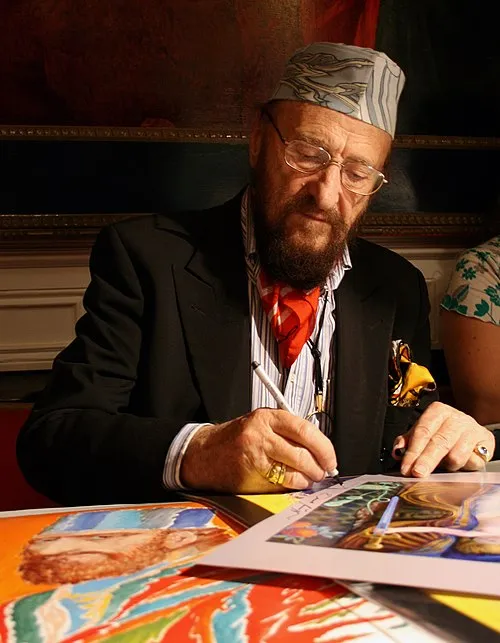In 2023, NYU Langone Health surgeons made medical history by performing the world's first complete eye transplant. This groundbreaking achievement paves the way for future advancements in ocular surgery and vision restoration.
On November 9
15
Important Days
71
Important Events
309
Births and Deaths
recorded.
Holidays and Occasions
Events
Births and Deaths

Birthday of Muhammad Iqbal: Celebrating the Poet of the East
Muhammad Iqbal, widely regarded as the spiritual father of Pakistan, was born on November 9, 1877, in Sialkot, Punjab. As a prominent philosopher, poet, and politician, Iqbal's contributions to Urdu and Persian literature have left an indelible mark on the culture and psyche of South Asia...

Day of the Skulls (Día de los Ñatitas): Exploring Bolivia's Unique Cultural Tradition
The Day of the Skulls, or Día de los Ñatitas, is a fascinating and rich cultural event celebrated in Bolivia, particularly in La Paz. Taking place on November 8th every year, this unique tradition honors the deceased, allowing families to pay homage to their loved ones through a vibrant celebration filled with colorful altars, offerings, and the striking presence of skulls...

Azerbaijan Flag Day: Celebrating National Pride and Heritage
Flag Day in Azerbaijan, celebrated on November 9th, holds a significant place in the hearts of its citizens. This day commemorates the adoption of the national flag and serves as a reminder of the nation’s independence and cultural heritage...

Independence Day: Celebrating Cambodia's Freedom from France
Independence Day, celebrated on November 9th, marks a significant milestone in Cambodian history. It commemorates the day in 1953 when Cambodia regained its sovereignty from French colonial rule...

Inventors' Day: Honoring Innovation in Germany, Austria, and Switzerland
Inventors' Day, celebrated annually on November 9th in Germany, Austria, and Switzerland, is a significant occasion honoring the contributions of inventors and innovators to society. This day pays tribute to the creativity and resourcefulness of individuals who have changed the world through their inventions...

Uttarakhand Day: History, Celebrations, and Significance
Uttarakhand Day, celebrated on November 9th each year, marks the formation of the state of Uttarakhand in India in the year 2000. This day commemorates the rich culture, history, and natural beauty of this northern Indian state, often referred to as the 'Land of the Gods'...

World Freedom Day: Celebrating Freedom and Democracy in the U.S.
In the United States, World Freedom Day is commemorated annually on November 9. This day holds special significance as it marks the anniversary of the fall of the Berlin Wall in 1989 and celebrates the enduring values of freedom, democracy, and human rights...

Benignus of Armagh: The Bishop Who Helped Shape Irish Christianity
Benignus of Armagh, a significant saint in early Irish Christianity, is celebrated for his close association with St. Patrick and his pivotal role in the establishment of the Christian faith across Ireland...

Dedication of the Archbasilica of St. John Lateran: The Cathedral of the Pope
The Dedication of the Archbasilica of St. John Lateran, celebrated on November 9th each year, is not just a memorial feast day but a significant event in the Roman Catholic Church, marking the dedication of the Cathedral of the Pope...

Margery Kempe: A Pioneering Figure in the Church of England
Margery Kempe, a remarkable 15th-century mystic and writer, is recognized as one of the earliest autobiographers in the English language. Her life and works offer a fascinating glimpse into the spiritual landscape of medieval England and the evolution of the Church of England...

Martin Chemnitz: A Pillar of Lutheran Theology
Martin Chemnitz (1522-1586) was a significant figure in the development of Lutheran theology during the Reformation period. His scholarly contributions and commitment to the Lutheran faith positioned him as one of the foremost theologians of his time...

Nectarios of Aegina: A Comprehensive Overview of the Beloved Saint
Nectarios of Aegina, a revered saint in the Eastern Orthodox Church, is celebrated for his piety, wisdom, and miraculous deeds. Born on October 1, 1846, in Selymbria, Greece, he dedicated his life to God and became a significant figure in Orthodox Christianity...

Theodore of Amasea: Patron Saint of Soldiers in the Roman Catholic Church
Theodore of Amasea is an essential figure in the Roman Catholic Church, revered as a saint and a martyr. His life and deeds have left a significant mark on Christian history, inspiring countless individuals, especially soldiers, throughout the centuries...

Discover the Virgin of Almudena: Madrid’s Patron Saint and Cultural Icon
The Virgin of Almudena (Virgen de la Almudena) holds a special place in the hearts of Madrid's residents. She is not only the patron saint of the city but also a symbol of faith, history, and culture that resonates deeply among locals and visitors alike...

Vitonus: Your Gateway to Enhanced Health and Wellbeing
In today's fast-paced world, maintaining optimal health and wellness has become more challenging than ever. With numerous supplements and health products saturating the market, you may find yourself asking, "What truly works?" Enter Vitonus – an innovative dietary supplement that has garnered attention for its remarkable benefits and efficacy...


























